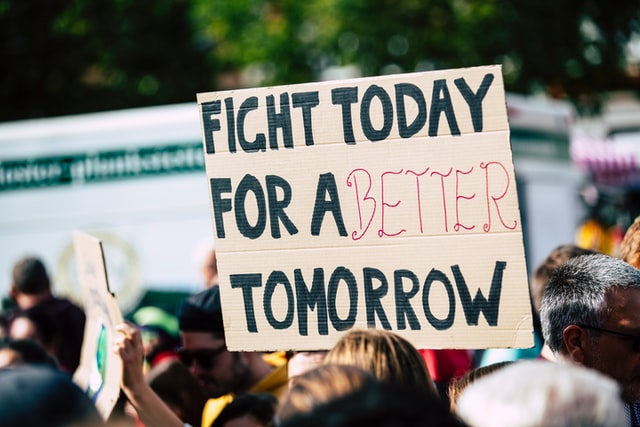Finding a problem and fixing it. That’s what drives Yaseen Ghazal and it’s materializing in his new venture “FeeBack”. Through his different marketing roles at Emirates Airlines, Microsoft and Accor, he’s developed his vision of what service quality can be about and he’s telling us more about how he’s planning to create a win-win paradigm for merchants and customers.
Hello Yaseen, can you tell us more about yourself and your business?
I grew up in Jordan in a low-middle class neighborhood in Amman. At the age of 16 I started working in part time jobs while studying for high school, saved some money for university education and got some financial support from my family to study Business Administration at ASU in Jordan. I kept working in marketing agencies as a part-time promoter for products and services to clients in the telecom, tech, and home appliances sectors which gave me some exposure to sales techniques and enhanced my communication skills.
After graduation I moved to the UAE and started working in marketing positions with well recognized companies including Emirates Airlines, Microsoft, and Accor Hotels. I then decided to move to the UK to pursue a degree in Psychology but after studying for around 4 months I changed my course to a MSc in Marketing and Advertising because of the deep love I had for this field.
So, what is “FeeBack“? Think about it as the baby of Nielsen, Yelp, Google Maps, and Groupon combined – It is where consumers from the generation Z receive cash for their feedback on the quality of service and products they purchase from local merchants.
It is an accessible mystery shopping service for SMBs. Merchants acquire new customers while receiving feedback to enhance the quality of service. Consumers receive cash, speak up their minds, and help in enhancing the quality of service in local merchants.
What initially motivated you to start this business?
From the moment I completed my master’s degree, I started looking for problems to solve through innovation and creative ideas which led me to open my eyes broader to see the bigger picture. I went back to my home country Jordan and started talking to people about their struggles in their daily lives and discussing potential improvements in certain areas until I came across a problem that I thought I can solve with my marketing experience.
And since then (almost 17 months now), I’ve been working on my startup FeeBack to enhance the quality of services and provide accessible mystery shopping services to SMBs.
Can you tell us more about what makes it different?
FeeBack introduces a sweet spot for (1) enhancing the quality of services and products, (2) incentivizing customers to participate by rewarding them with cash and points for their feedback, (3) exposure to local and nearby merchants, and (4) a mystery shopping service that is done by real customers with the lowest price in the market.
What is the feedback from your customers at the moment?
We started our first piloting/MVP by introducing 2 mobile apps, one for users and one for merchants. The merchant’s app was built to give full control to the merchant to request customers, choose questions, decide on how many customers are required and the maximum amount of cash he/she is willing to give for their customers for their feedback on the quality of service provided at the merchant’s shop.
Out of 35 merchants who joined in the piloting phase, only 2 were interested in downloading and using the merchants app, not because of a technical problem or a non-friendly interface, but because they think it needs some effort to set up a request (choose the needed number of customers to visit their shops, select suitable questions, etc.). Nevertheless setting up a request takes around 50 seconds to be completed and go live, we learned that it’s easier for merchants to ask them about these questions over the phone or when we sign the agreement with them and set up requests on their behalf based on their needs. This guided us to leave the merchant’s app aside when rebuilding FeeBack’s assets and focus on building a desktop admin manager that is managed by our team but can be customized with unique login details if a merchant wants full control over their requests. So, it will be something like “Ads Manager” for Facebook.
What will make your venture a success?
Success is about sustainability, and sustainability is largely connected with customer satisfaction.
FeeBack is all about customer satisfaction and creating value for its shareholders. Customers (local merchants) and consumers (users of the app) are equally benefiting from using FeeBack. The formula is simple, as long as we keep the cycle of creating value for our customers and consumers running, nothing will stop us from being successful.
Our customers want to increase sales without damaging the brand image with too many offers and discounts, they also want competitive edges in the market to stay ahead of competition and increase their chances of having a long-lasting sustainable brand by knowing their weaknesses and improving where necessary. That’s exactly what we help them to do!
On the other hand, our consumers want to get rewarded with cash for speaking up their minds and sharing their opinions while exploring nearby/local shops who care about customer satisfaction. FeeBack provides that!
To conclude, once a win-win model is presented to the market, where all shareholders are benefiting and happy with the outcome, the venture will most likely stick around for as long as it creates value.
What market trends have you observed since the beginning of the pandemic?
The pandemic has affected the health of the public, and it’s also impacted the economy. As people practiced social distancing and avoided unnecessary trips, and as many businesses were forced to close their physical stores or limit their in-store capacity, most brick-and-mortar stores felt the pain of limited foot traffic. On the other hand, e-shopping sales increased.
In the UAE for instance, more people started relying on delivery for meals, and more restaurants were relying on take-outs for income, with people in self-isolation and quarantine to help stop the spread of Covid-19. This had shed the light on delivery services, and the commission cut they took. Which led Dubai food blogger Food Sheikh and the online ordering platform ChatFood to team up to create a platform that directly connects restaurants with customers. They understood that if they don’t join forces, they would lose to third party delivery companies, it was an eye opener for them to test and understand if their customers are loyal to the food delivery aggregators or to their brands.
What advice would you give to those who need to reinvent themselves because of the crisis?
With the time of struggle to save their businesses, merchants became aware of their vulnerabilities, most of them worked hard, dropped their prices and united to save the day, on the other hand, few SMBs gave up on their businesses and had to shut down because they either didn’t have enough capital to keep up, or because regulations were too hard on them and governments didn’t compensate their losses.
Here I would like to share my number one advice:
It’s a competitive world, if we don’t take it seriously, we will eventually lose to someone who does. When you rebuild yourself or your business, it’s better to be slow but sure while building the infrastructure, and rapid in executing, reflecting and adapting to the feedback from your audience. Once an unforeseen event happens, you will have a solid base to lean on, and once an opportunity arises, you are the quickest to grab it.




